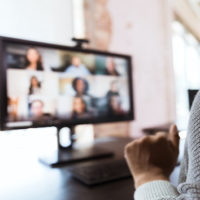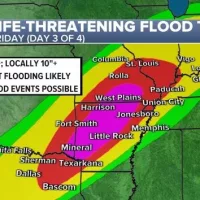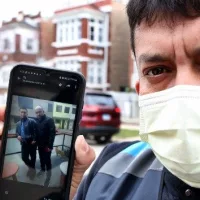
SDI Productions/iStockBY: BILL HUTCHINSON AND JOSH MARGOLIN, ABC NEWS
(NEW YORK) — Rutgers University officials have launched an investigation into a string of recent “racist and bigoted Zoom-bombings” that have marred student online events with most of the attacks targeting Black History Month programs, according to the school’s chancellor.
Chancellor Christopher Molloy wrote in a statement sent to students and staff on Friday that the most recent “Zoom bombings” have occurred during online events hosted by the university’s Paul Robeson Culture Center and the Center for Social Justice Education & LGBTQ Communities.
“I am deeply disturbed and saddened to learn of racist and bigoted Zoom-bombings that have been occurring in the past several days during non-academic student events,” Molloy said in his statement, adding that the Rutgers’ University Police Department, the school’s Office of Information Technology and the Division of Student Affairs are investigating the attacks in an attempt to identify the culprit or culprits.
Molloy said the attacks are “likely part of a larger coordinated international activity” but did not give any additional details.
Earlier this month, Penn State University announced the FBI was investigating a racist “Zoom bombing” that targeted an online student-based Black Caucus event on Jan. 27. More than 50 uninvited users reportedly infiltrated the online Zoom room during a Spring Virtual Involvement Fair and shouted racial and homophobic slurs for 10 to 15 minutes, according to the Centre Daily Times.
Molloy declined to detail the recent online attacks on Rutgers’ student events, saying in his statement, “we will not give these bigoted individuals the platform they cowardly sought by going into details.”
“I do want us all to acknowledge the harm done to Black and LGBTQ members of our community, and affirm their pain,” Molloy said. “Marginalized communities are too often forced to bear such hatred and navigate in spite of it, and moments like this cut and wound deeply. I strongly condemn these horrific acts.”
Molloy said he is working with Rutgers President Jonathan Holloway on how to prevent further attacks.
“This creates some challenges, as it requires the involvement of various jurisdictions and technology companies,” Molloy said. “We will not resolve this overnight, and it is likely that incidents like these may reoccur before the perpetrators are identified. Therefore, we must remain vigilant to protect our community.”
He asked student groups to immediately report online attacks through the university’s online reporting system and to use instructions being put out by the university on conferencing security, including tips on how to avoid future attacks.
In March 2020, the FBI issued a warning for users of the popular videoconferencing platform to be on guard against attacks. The warning came after officials at two Massachusetts high schools reported Zoom attacks. In one of the incidents, a teacher was conducting a Zoom class when unidentified individuals dialed in, yelled profanities and the teacher’s home address.
“In this incident, the individual was visible on the video camera and displayed swastika tattoos,” the FBI statement reads. No arrests have been made in the Massachusetts incidents.
In April, a Connecticut teenager was arrested on charged with computer crimes related to a “Zoom-bombing” that occurred during a number of online classes in the Madison Public School District. The teenager, a Madison resident whose name was not released due to his age, was charged with fifth-degree computer crime, fifth-degree conspiracy to commit a computer crime and breach of peace, police said.
In a statement to ABC News in March, Zoom officials urged people to report attacks and they would take appropriate action.
“We take the security of Zoom meetings seriously and we are deeply upset to hear about the incidents involving this type of attack,” a Zoom spokesperson said in the statement at the time. “For those hosting large, public group meetings, we strongly encourage hosts to review their settings and confirm that only the host can share their screen.”
Copyright © 2021, ABC Audio. All rights reserved.















